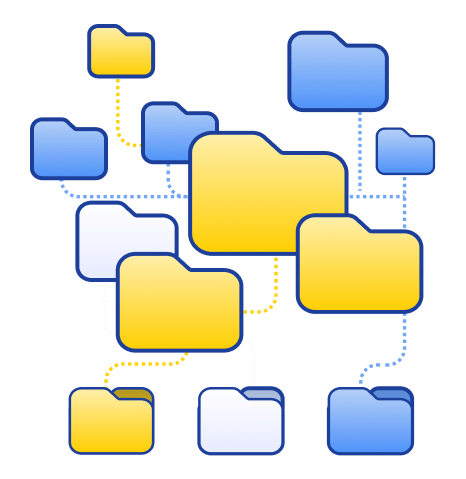Introduction
Businesses are continually accumulating vast amounts of data, a significant portion of which is unstructured. Unstructured data poses unique challenges for data governance. Organizations increasingly realize the need to enhance their unstructured data governance to ensure data quality, privacy, security, and compliance with data privacy regulations and industry requirements. This comprehensive article will explore the intricacies of unstructured data governance, its importance, and the best practices for managing it effectively.
Understanding data governance
Before delving into unstructured data governance, it’s essential to understand the broader concept of data governance. Data governance refers to the set of processes, policies, and practices that organizations implement to ensure the high quality, security, and compliance of their data assets. This includes structured and unstructured data.
Unstructured data vs. structured data
Structured data is highly organized and stored in predefined formats, making it easy to manage and analyze. Unstructured data, on the other hand, lacks a specific structure and is often stored in various file formats, making it more challenging to process and extract valuable insights. Businesses today accumulate vast amounts of unstructured data from a wide range of sources, including email communications, social media, audio recordings, images, and more.
Challenges of unstructured data governance
Unstructured data presents unique challenges for data governance. Some of the primary challenges include:
Variety: Unstructured data comes in diverse formats, making it difficult to standardize and manage.
Volume: The sheer volume of unstructured data generated can be overwhelming, and storage costs can quickly escalate.
Data types: Unstructured data encompasses text, audio, images, and more, each requiring different approaches for analysis and management.
Data privacy regulations: Unstructured data often contains sensitive information, making it crucial to comply with data privacy regulations.
Importance of data governance for unstructured data
Effective data governance is critical for unstructured data due to several reasons:
Data quality: Good governance practices ensure that unstructured data is accurate and reliable.
Data security: Unstructured data often contains sensitive information, making security a top priority.
Compliance: Organizations must adhere to data privacy regulations and industry standards.
Value extraction: Proper governance enables businesses to extract valuable insights from their unstructured data, leading to better decision-making.

Data discovery for unstructured data
Data discovery is the crucial process of locating and identifying data within an organization. It is a vital first step in unstructured data governance, as it helps organizations understand their data, where it’s stored, and who has access to it. The process involves identifying data sources, understanding data formats, and determining data quality. Automated tools can be used to assist in discovering unstructured data sources and metadata. These tools can help organizations save time and resources by making the data discovery process more efficient. Furthermore, they can comprehensively understand an organization’s data landscape, which is important for effective data management and decision-making.
Data quality in unstructured data
Data quality is a cornerstone of effective data governance. In order to ensure that the insights derived from data are accurate and reliable, it is essential to maintain high standards of data quality. This is particularly important when it comes to unstructured data such as text documents, audio files, and images. Data quality tools can help organizations identify and rectify issues within unstructured data, improving its accuracy and reliability for decision-making. By implementing data quality processes and tools, organizations can feel confident that the insights they draw from their data are based on the most reliable and accurate information.
Data preparation process
Preparing unstructured data for analysis can be a complex and time-consuming process. It often involves transforming the data into a usable format, which may include extracting text from images, transcribing audio recordings, and cleaning up text documents. Traditionally, this has been done manually, which can be both labor-intensive and prone to errors. However, with the rise of automated data preparation tools and machine learning and artificial intelligence (AI), this process can now be streamlined and made more efficient. These tools can help reduce the amount of time and resources required for data preparation while also improving the accuracy and quality of the data being analyzed.
Leveraging Natural Language Processing (NLP)
Natural Language Processing (NLP) is a specialized field of Artificial Intelligence (AI) that focuses on the interactions between computers and human language. The primary objective of NLP is to enable machines to understand, interpret, and respond to human language in a natural and intuitive way. NLP can be immensely valuable for unstructured data governance as it allows organizations to perform sentiment analysis, entity recognition, and topic modeling, providing deeper insights into text documents and audio recordings. By leveraging NLP techniques, businesses can uncover hidden patterns, gain a deeper understanding of customer behavior and preferences, and make more informed decisions. The potential applications of NLP are virtually limitless, ranging from language translation and speech recognition to chatbots and virtual assistants. With the rapid advancements in AI technology, we can expect NLP to become even more sophisticated and capable in the future, opening up a world of new possibilities for businesses and individuals alike.
Data privacy in unstructured data
Unstructured data can come in many forms, such as emails, text documents, spreadsheets, and social media posts. However, this type of data often contains sensitive information, and protecting it is of utmost importance. Implementing robust data privacy practices and using access controls to restrict who can view, edit, and share unstructured data is essential to comply with data protection regulations and safeguard sensitive information. By implementing these measures, organizations can prevent data breaches and potential legal consequences that may arise from the mishandling of sensitive information. Additionally, ensuring that all employees are properly trained in data privacy best practices is crucial in maintaining a strong data security posture.

Data security for unstructured data
Security has become a significant concern for businesses and organizations of all sizes. This concern is particularly pronounced when it comes to dealing with unstructured data, which can be more vulnerable to security breaches than structured data. It’s important to implement robust security measures such as encryption, data masking, and perimeter monitoring for unstructured data sources to mitigate the potential risks of data breaches.
Access controls and data governance
Data governance has become a critical aspect of modern-day businesses with the increasing amount of unstructured data. Companies need to keep their data secure and ensure that only authorized personnel have access to it. By implementing robust access controls and monitoring user activities, organizations can ensure that the data is protected from unauthorized access, modification, or sharing. This helps enforce data governance practices and safeguards corporate data. Ensuring data privacy and security has become more important than ever, and companies need to take all necessary measures to protect their valuable data assets.
Data governance practices for unstructured data
To enhance unstructured data governance, organizations should consider the following best practices:
Develop and communicate clear data governance policies and procedures.
Appoint data stewards responsible for overseeing unstructured data.
Regularly audit and monitor unstructured data sources.
Implement data classification to identify sensitive information.
Educate employees on data privacy regulations and best practices.
Keep abreast of industry regulations and adjust governance practices accordingly.
Value of unstructured data in data analytics
Unstructured data has become a valuable asset for most organizations, as it is an unexplored pool of information that holds immense potential for businesses to gain valuable insights. However, managing this data can be daunting, given the sheer volume of information that needs to be processed and analyzed. But with the help of AI tools and generative AI, businesses can now derive meaning from text documents, audio recordings, and images much faster and more accurately. This, in turn, enables organizations to make better decisions and gain a competitive edge in the market. So, leveraging the power of AI to manage unstructured data is not just a smart move but a necessity for businesses that want to stay ahead of the curve.
Managing sensitive data in unstructured formats
Sensitive information is often embedded in unstructured data, making it vulnerable to cyber threats. Organizations must employ robust data classification and encryption techniques to protect this data from unauthorized access, theft, or manipulation. This is particularly important for compliance with data privacy regulations such as GDPR and CCPA and maintaining customer trust. By implementing these security measures, organizations can ensure that their sensitive information remains confidential and secure, thereby reducing the risk of reputational damage, financial loss, and legal liability.
Data classification for unstructured data
Data classification is a critical process that involves categorizing data based on its sensitivity and importance. By applying data classification to unstructured data, organizations can identify which information requires the highest level of protection and control. This helps in ensuring that sensitive information is safeguarded against unauthorized access, theft, or misuse. Data classification also helps organizations streamline their data management processes, minimize compliance risks, and ensure that all data is properly secured. By implementing a data classification framework, organizations can better understand their data assets and make informed decisions about how to manage them effectively.
Data retention policies for unstructured data
Data retention policies dictate how long data should be stored and when it should be deleted. These policies are especially important in unstructured data governance, where the volume of data can quickly become unmanageable. Organizations must develop and enforce data retention policies for different unstructured data types to avoid data hoarding and potential legal risks. Failure to comply with data retention policies can result in severe legal and financial consequences, such as fines, lawsuits, and reputational damage.
Therefore, it is crucial for organizations to establish clear data retention policies and regularly review and update them to ensure compliance with changing laws and regulations. Additionally, it is equally important for organizations to educate their employees on data retention policies and provide them with the necessary tools and resources to comply with these policies.
Role of data stewards in unstructured data governance
Data stewards play a crucial role in ensuring effective data governance for unstructured data. They are responsible for overseeing data quality, compliance, and security and act as custodians of unstructured data within the organization. Data stewards help maintain data assets and enforce governance practices, ensuring that unstructured data remains accurate and secure. Their role is particularly important in today’s data-driven world, where businesses have to deal with large volumes of data from multiple sources. Data stewards help improve decision-making, reduce risks, and drive innovation by ensuring that the organization’s unstructured data is properly managed. They work closely with other stakeholders across the organization to ensure that data is properly classified, stored, and used in compliance with local regulations and industry standards.

Monitoring log files for unstructured data governance
Log files are an essential tool for tracking data access and usage. By monitoring log files for unstructured data sources, businesses can gain valuable insights into who is accessing the data, how it’s being used, and whether any unauthorized activities are taking place. This helps maintain data security and compliance and enables businesses to optimize their data usage and identify potential areas for improvement. In addition, analyzing log files can help businesses proactively detect and respond to security threats, reducing the risk of data breaches and other security incidents.
The future of unstructured data governance
The future of unstructured data governance is closely tied to the evolution of technology and data management practices. Here are some trends that are likely to shape the future of unstructured data governance:
Advanced AI and machine learning: Continued advancements in AI and machine learning will further enhance organizations’ ability to extract valuable insights from unstructured data. These technologies will become more sophisticated in understanding and analyzing text documents, audio recordings, and images.
Integration with structured data: The lines between structured and unstructured data will blur as organizations seek to combine and analyze both data types for a more comprehensive view of their enterprise data.
Improved data privacy tools: With the increasing emphasis on data privacy, organizations will invest in more robust tools and solutions to protect sensitive information within unstructured data sources.
Enhanced data classification: Data classification tools will become more refined and capable of automatically identifying and categorizing unstructured data, simplifying governance efforts.
Adherence to evolving regulations: Organizations will need to adapt their unstructured data governance practices to align with changing data privacy regulations and industry standards.
Cross-functional collaboration: Data governance will increasingly involve collaboration between various departments within an organization. Legal, IT, and compliance teams will work together to ensure data privacy and security for unstructured data.
Conclusion
Unstructured data governance is a critical aspect of overall data management for businesses today. As organizations continue acquiring data from diverse sources, the need for effective unstructured data governance becomes more pronounced. This article has explored the challenges and importance of unstructured data governance, as well as best practices and future trends in the field. By implementing robust data governance practices for unstructured data, organizations can not only mitigate risks but also unlock the valuable insights hidden within their unstructured data, enabling better decision-making and enhanced value for their businesses.







